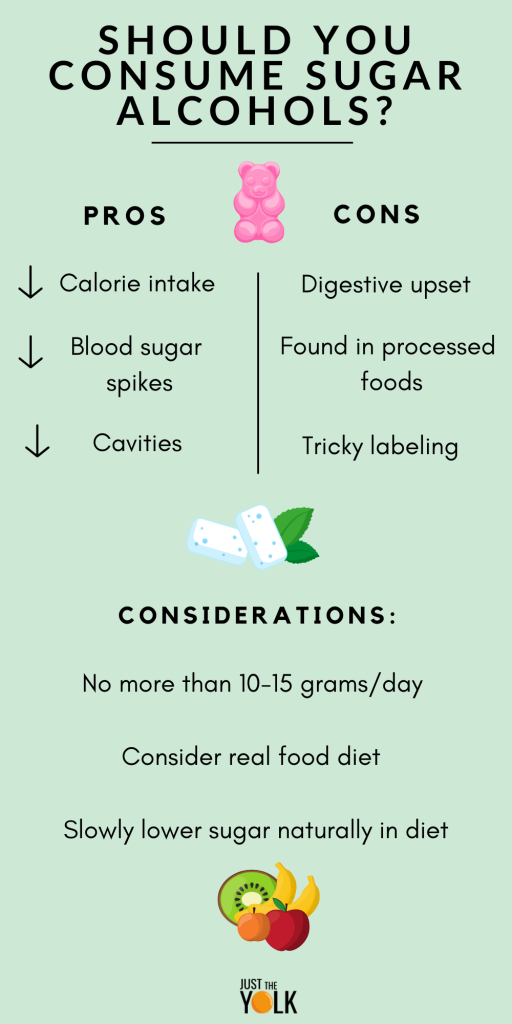Pros and Cons of Sugar Alcohols
The Yolk
What is a sugar alcohol?
- A reduced calorie sweetener
- Types of sugar alcohols
- Mannitol
- Maltitol
- Lactitol
Pros of sugar alcohols
- Reduced calorie intake
- Half the calories of sugar
- Reduced sugar intake
- Fewer carbohydrates for diseases such as diabetes
- Less of a blood sugar spike
- Reduced cavities
- Sugar alcohols do not react with plaque on teeth
Cons of sugar alcohols
- Digestive upset
- Only partly absorbed in the body – causes gut upset
- Gas, bloating, diarrhea
- Too much can cause a laxative effect
- Consume a max of 10-15 grams per day
- Tricky labeling
- Sugar alcohol amount is only on a label when it is claimed to be sugar-free
- FDA does not require labeling unless “there is a laxative effect”
- Existing in processed, packaged products
- Products may also contain many carbohydrates
- Check labels if you have diabetes and need to watch carbs
How to know if you’re eating sugar alcohols
- Listed on the nutrition facts label under carbohydrates
- The package may also say:
- Keto safe or friendly
- Diabetes safe
- Sugar free, low sugar, no sugar
- Artificially sweetened
- Calorie free or low calorie
Perspective
- Try your best to stick to real, whole foods
- If you do decide to consume sugar alcohols, limit to 10-15 grams per day
- Consider monk fruit as a sweetener, which does not report any side effects so far
- The best way to avoid worrying about this is to slowly decrease sugar from your diet naturally
- Not by replacing sugar with another sweetener
- One thing less each week or day until you can handle more without feeling withdrawal symptoms
Research & Resources


